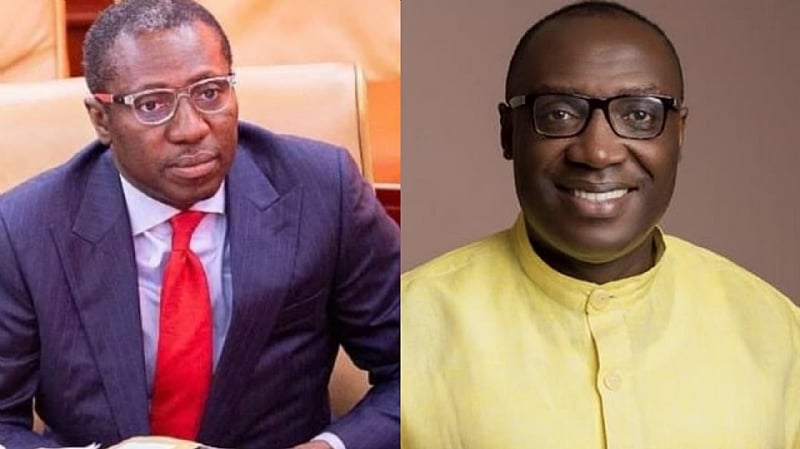The political landscape in Ghana has been recently enlivened by a public exchange between Henry Osei Akoto, a former National Organiser Aspirant of the National Democratic Congress (NDC), and Alexander Kwamena Afenyo-Markin, the Minority Leader in Parliament. The crux of the matter revolves around Afenyo-Markin’s wealth and its origins, a topic that came under scrutiny during the vetting of Samuel Okudzeto Ablakwa, the Minister of Foreign Affairs-designate. Akoto’s public pronouncements have cast doubt on the legitimacy of Afenyo-Markin’s accumulated assets, insinuating potential impropriety. This incident has highlighted the ongoing political tension between the NDC and the ruling party, and further underscores the importance of transparency and accountability among public officials.
The controversy began during Ablakwa’s vetting, where he disclosed possessing information regarding properties acquired by Afenyo-Markin, specifically mentioning land in Winneba. Ablakwa’s position as Chairman of “Operation Recover All Loot” (ORAL), an anti-corruption initiative launched by President John Dramani Mahama, lent weight to his assertions. ORAL’s mandate is to recover allegedly misappropriated state assets, thus placing Afenyo-Markin’s wealth under the spotlight of public scrutiny. Afenyo-Markin, while acknowledging ownership of the Winneba land, vehemently denied any fraudulent acquisition from state resources. This initial exchange sparked a series of public pronouncements and interviews, further fueling the controversy.
Afenyo-Markin’s repeated attempts to clarify the source of his wealth, according to Akoto, have only served to amplify suspicions. Akoto’s public statement on social media, expressing confidence in ORAL’s eventual success in uncovering any potential wrongdoing, poured fuel on the already smoldering fire. This comment reflects a broader public concern regarding the transparency and accountability of political figures, particularly concerning their financial dealings. The insinuation is that Afenyo-Markin’s repeated explanations, instead of allaying concerns, have inadvertently heightened skepticism about the legitimacy of his acquired assets.
The timing of this exchange is significant, coinciding with Ablakwa’s vetting for a ministerial position. This public airing of potential financial impropriety has inevitably become intertwined with the confirmation process, potentially influencing public perception and political discourse surrounding Ablakwa’s suitability for the role. Furthermore, it adds another layer to the ongoing political maneuvering between the NDC and the ruling party, with accusations of corruption often serving as a potent weapon in political battles.
The core issue at stake here is the public’s right to know and the responsibility of public figures to be transparent about their financial dealings. The controversy surrounding Afenyo-Markin’s wealth highlights the importance of robust mechanisms for ensuring accountability and preventing corruption. The effectiveness of initiatives like ORAL will be closely watched, as their success or failure in uncovering and recovering misappropriated state assets will significantly impact public trust in government institutions.
The ongoing exchange between Akoto and Afenyo-Markin, fueled by Ablakwa’s disclosures during his vetting, represents more than just a political spat. It serves as a microcosm of a larger issue: the demand for transparency and accountability among public officials. The controversy underscores the need for effective institutions to investigate and address allegations of corruption, ensuring public confidence in the integrity of the political system. The outcome of this particular case, and the effectiveness of initiatives like ORAL, will significantly shape public perception and influence future efforts to combat corruption in Ghana’s political landscape. The focus now shifts to the investigations and subsequent findings, which will ultimately determine the validity of the accusations and the course of action to be taken.














